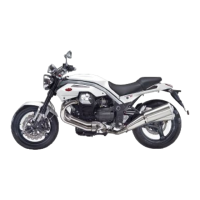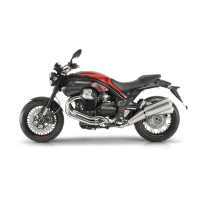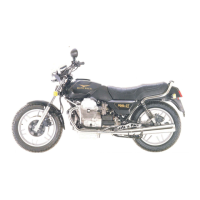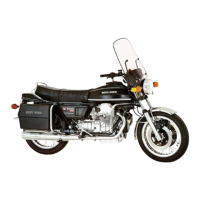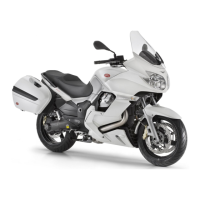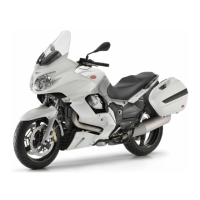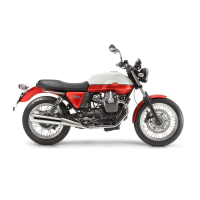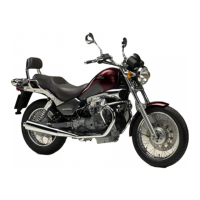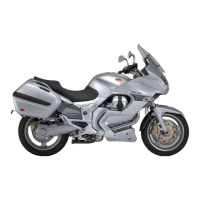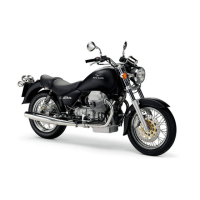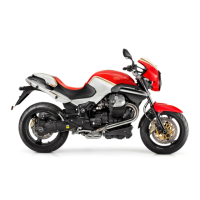use and maintenance Griso R
100
CLEANING
Clean your vehicle regularly. Your vehicle
will look better and work better if you keep
it clean. You will find you will need to clean
it more frequently if it is used in the
following conditions:
– Polluted areas (cities and industrial areas).
– Areas characterized by a high percentage
of salinity and humidity (sea areas, hot and
humid climates).
– Particular conditions (use of salt and anti-
ice chemical products on the roads during
the winter).
u Do not allow contaminants such as
industrial dust, tar spots, dead insects, bird
droppings, etc. to remain on the painted
portions of your vehicle. They will very
quickly etch into and damage the paint.
u Do not park your vehicle under trees, since
some trees ooze resins that contain
chemicals which can damage the paint.
WARNING
After your vehicle has been washed, the
brake functioning will be temporarily
impaired because of the wetness of the
disks and pads. Do not ride in traffic
until after you have dried the brakes by
repeated braking from slow speed.
Always after washing your vehicle,
carry out the preliminary checking
operation, see p. 62 (PRE-RIDE
CHECKS CHART).
CAUTION
To clean the lights, use a sponge
soaked with water and a neutral
detergent, rubbing the surfaces
delicately and rinsing frequently with
plenty of water.
Polish with silicone wax only after
having carefully washed your vehicle.
Do not use polishing pastes on matt
paints.
Do not wash the vehicle in direct
sunlight, especially during the summer,
when the paintwork is still warm, since
if the shampoo dries before being
rinsed away, it can damage the paint.
Do not use solvents or water hotter than
40°C to clean the plastic components of
the vehicle.
Never use a high pressure washer, a
steam cleaner, or an air augmented
water jet to clean your vehicle,
especially the wheel hubs, handlebar
controls, brake reservoirs and
cylinders, instruments, electrical
components or exhaust silencer.
Such cleaning machinery will force
water into critical portions of your
vehicle, which could damage your
vehicle through corrosion or short
circuiting.
Do not use alcohol or gasoline or
solvents to clean rubber and plastic
parts. Use only clear water with a mild
soap.
GUZum_griso1100#06_#USA.book Page 100 Tuesday, March 21, 2006 2:43 PM
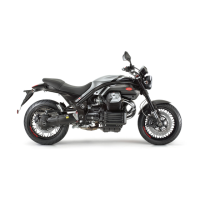
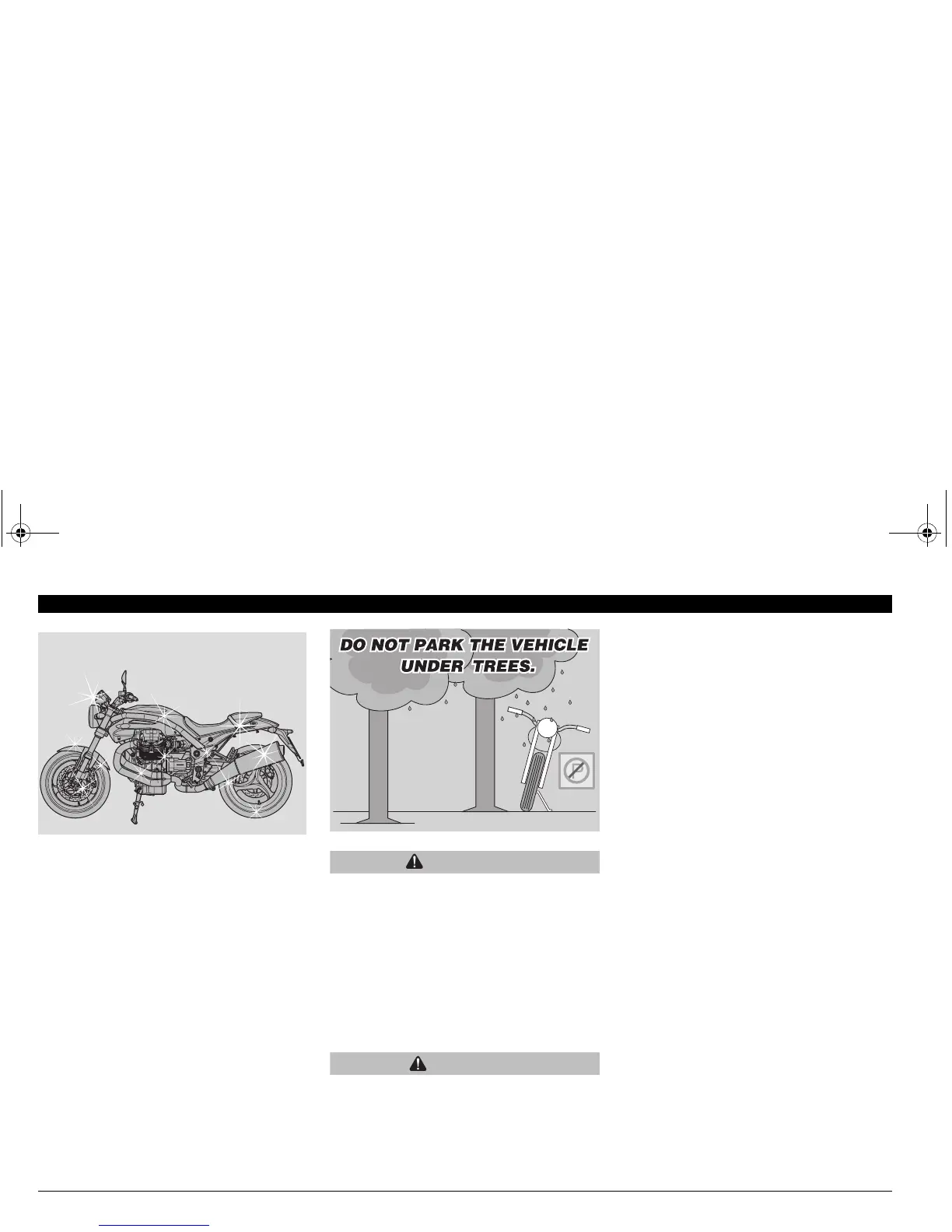